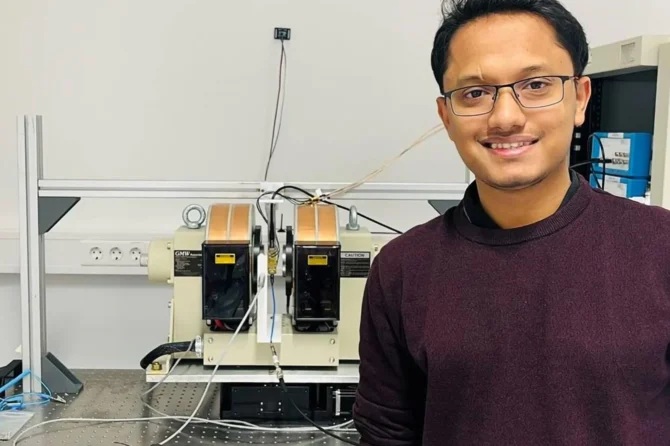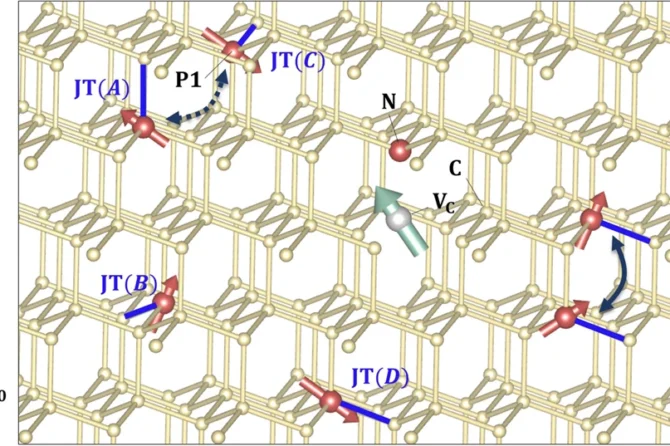A team of researchers led by IMDEA Nanociencia, Universidad Autónoma de Madrid and Universidad Complutense de Madrid have presented a new strategy to fabricate quasi-metallic 1-D polymers with atomic precision by exploiting topological order and π-conjugation.
Topological band theory classifies gapped materials by mathematically studying their band structure in insulators and topological nontrivial insulators. In the Su-Shrieffer-Heeger (SSH) model, one resonant form behaves as a normal insulator, whereas the other resonant form is a topological nontrivial 1-D insulator, i.e., a gapped material featuring in-gap edge states. Thus, a crossover of resonant form can change the topological class of a polymer. But polyacetylene, in any of its resonant forms, is a gapped material. As a result, this polymer can only increase its conductivity by being chemically or electrochemically doped.
The scientists devised a combined experimental-theoretical investigation bridging the fields of topological band theory (solid state physics) and pi-electron conjugation (organic chemistry) in order to give rise to quasi-metallic organic polymers.
This work serves both as a proof of the intimate relation between resonant form and topological class, while offering a new tool to produce stable organic intrinsic metals by designing polymers at the exact topological boundary.
This investigation advances the possibility of designing stable organic polymers with vanishing electronic bandgaps with applications that include molecular optoelectronics and quantum information technology. (Phys.org)
The study is reported in the journal Nature Nanotechnology.



